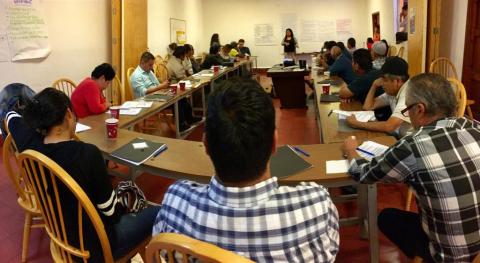Enero 31, 2020
January: Human Trafficking Awareness Month

This year marks the twentieth anniversary of the adoption of the Trafficking Victims Protection Act of 2000 (TVPA). January is a trafficking awareness month, which was established to educate the public about the signs of human trafficking.
What is human trafficking?
The National Human Trafficking Hotline defines the crime of trafficking in persons as when “a trafficker uses force, fraud or coercion to control another person to participate in commercial sex acts or request work or services against of his will.” Identifying human trafficking is not always easy, but it is incredibly important. A person can face human trafficking without knowing it. Migrant farmworkers are vulnerable to exploitation and trafficking.
How do I identify human trafficking?
The National Human Trafficking Hotline outlined the following examples of force, fraud and coercion as possible experiences of migrant farmworkers. An example of force can be physical or sexual abuse. Another example could be when there is an obstacle to leaving your workplace or home during your free time or in an emergency.
Fraud can include false offers of employment, and differences between the promised salary and contract and actual work conditions. Examples of coercion can be threats of deportation when the employer or supervisor threatens to involve immigration enforcement and return workers to their country of origin. Another example could be if the employer or supervisor collects and maintains your passport or other identity documents.
Take action!
If you believe that you or someone you know is facing trafficking conditions, please call the National Human Trafficking Hotline, USA: 1-888-373-7888 (TTY: 711), MX: 01800 5533 000. You can also send a text message: 233733 (USA).
"Agriculture.” National Human Trafficking Hotline, humantraffickinghotline.org/labor-trafficking-venuesindustries/agriculture.
